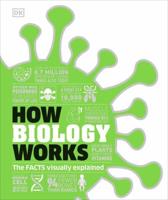Publisher's Synopsis
Spermine, spermidine, and putrescine constitute the mammalian polyamines, abundant polycations with essential roles in critical cell functions. As such, intracellular polyamine concentrations are tightly regulated through biosynthesis, catabolism, and transport. The multifaceted effects of polyamine dysregulation have contributed to its role in multiple disease processes but have also implicated it as target for preventive or therapeutic intervention. The correlation between oncogene-mediated elevation of polyamine biosynthesis and cancer is well established, and induced polyamine catabolism contributes to carcinogenesis that is associated with certain forms of chronic infection and/or inflammation. In addition to cancer, polyamines are involved in the pathologies of neurodegenerative diseases, parasitic and infectious diseases, wound healing, ischemia/reperfusion injuries, and certain age-related conditions, as polyamines concentrations are reported to decrease with age. As in cancer, polyamine-based therapies for these conditions are an area of active investigation. With recent advances in immunotherapy, interest has increased regarding polyamine-associated modulation of immune responses as well as potential immunoregulation of polyamine metabolism, the results of which could have relevance to multiple disease processes. The goal of this Special Issue of Medical Sciences is to present the most recent advances in polyamine research as it relates to health, disease, and/or therapy.









